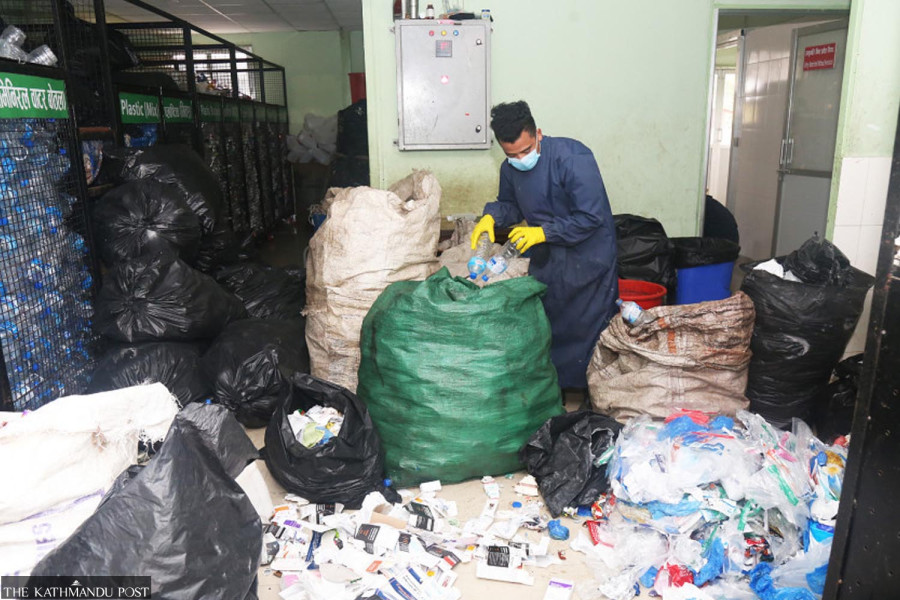Editorial
Ways to manage garbage
It is time we adopted means to recycle waste instead of dumping it in landfills.
Kathmandu Metropolitan City (KMC) started collecting only segregated waste from Sunday, asking householders to pack their biodegradable and non-biodegradable trash separately. In a bid to smoothen waste management, KMC has taken the initiative to segregate waste at the source. Unlike in the past, the onus of waste segregation is now on households; henceforth they will be required to segregate biodegradable waste from non-biodegradable. While environmentalists have welcomed the move, implementing this new procedure will undoubtedly hit roadblocks along the way.
One can formulate rules and regulations in the hope of altering deep-seated practices of the people, but if there isn’t awareness in the community, it could, in the end, amount to nought. Waste management in Kathmandu has been so disorganised in the past few years that streets lay littered with garbage for months. With almost 1,200 tonnes of solid waste generated every day in Kathmandu Valley, and nearly 60 percent of it originating in Kathmandu metropolis alone, it is clear that KMC officials need a radical way to find a lasting solution to this menacing problem that has frequently plagued city dwellers.
The idea of segregating waste is something KMC officials have experimented with in the past without making any headway. And there is nothing in it that stirs excitement either. It could hardly be classified as a game changer, with much of how waste collection remains unchanged. Most households currently dump waste at a common point before it is collected, and despite the city official’s decision to levy fines on offenders who fail to comply with the current regulations, it would be cumbersome for the waste collectors to try and catch them.
Recycling waste is the mantra adopted by most developed nations, and a tried and tested measure could undoubtedly help us overcome the growing problem of waste management. Constantly relying on landfill sites, as seen here in Nepal, has done little to alleviate our waste-associated problems. Unable to manage the only existing landfill for Kathmandu and the surrounding areas at Sisdol, city officials constantly have to confront angry locals at the receiving end of this mismanaged crisis. It is time we adopted means and methods to efficiently recycle waste instead of dumping it in landfills. This could be an alternate solution to the existing problem and avoid the ire of locals.
Unless and until there is general awareness and belief among the people that their tiny, albeit necessary, actions would aid in precipitating change for the broader common good, threats of fines would do little to change what people are generally accustomed to. We cannot expect to better our situation by relying on the old ways of doing things. Thus, the new step is a welcome move in the right direction, but it needs to be constantly improved and monitored to plug any shortcomings.




 13.12°C Kathmandu
13.12°C Kathmandu














